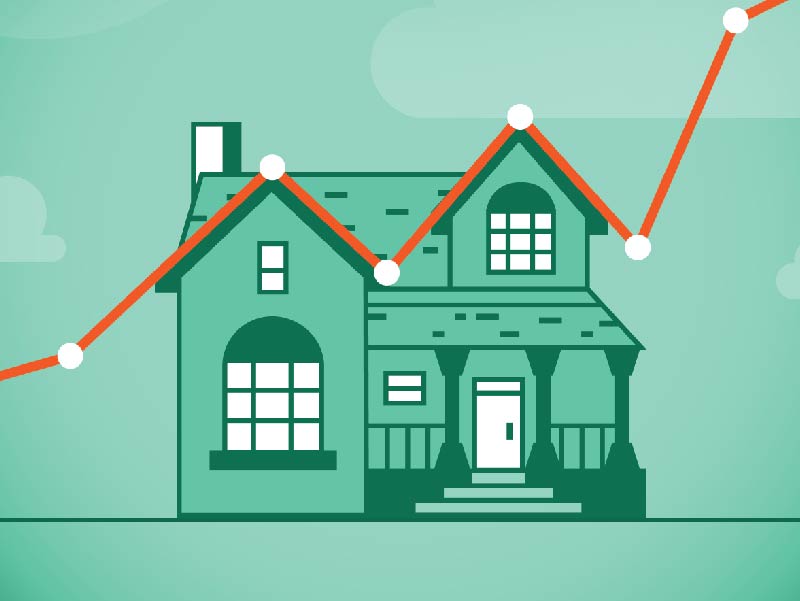-
-
-
FNBO
MortgageDec 01 2018
-

Your Credit Score Plays A Major Role In Your Mortgage Rate
Let’s begin with a simple way to look at credit scores and how they typically influence mortgage rates when applying for a home loan:
- High credit score = good interest rate.
- Low credit score = not as good of an interest rate.
We’ll get to why a low interest rate – even a fraction lower – matters in a minute. First, let’s talk about how your credit score affects the mortgage rate you receive when applying for a home loan.
As we mentioned, if you have a high credit score, you traditionally will get a more competitive rate on your mortgage. On the other hand, having a low credit score usually means paying a higher interest rate. For lenders, it helps them measure the risk they are taking in issuing you a loan.
For example, say you have two friends who both want to borrow $100. You’re the bank in this scenario.
One friend, Jack, has a history of taking forever to pay friends back. You have to text and email him constantly asking about repayment. He’s even skipped paying some friends back all together, leaving them high and dry.
But your other friend, Jill, has always been really good at paying you back. She’s never late with her repayment – no worries, no hassles.
So, who are you more eager to loan that $100 to? Further, if you are a nice friend and you loan both Jack and Jill $100, the interest you might charge them could differ. Since Jill is so good at paying people back, you might only charge her 10 percent interest, or $10, for a total payback of $110. However, since Jack is a bigger risk, you might charge him 20 percent interest, or $20, for a total of $120.
That’s one way to visualize how a lender might look at your credit score – which includes your history of paying off debt – when they calculate the interest rate for your home loan.
The better credit history you have, the higher your credit score will be, and the lower interest rate you will be assigned.
“Your credit score isn’t the only factor a lender considers when determining the interest rate of a home loan. Monthly income and assets also play a factor,” says Alan LaFollette, Managing Director, National Mortgage Sales at First National Bank.
“But if someone has a high credit score it shows us that they have been good at fulfilling their obligations when paying debt on things like car loans and credit cards. And that can translate into a lower interest rate, which can save a significant amount of money over the term of your loan.”
Most credit scores use the Fair Isaac Corporation (FICO) model, which “grades consumers on a 300- to 850-point range, with a higher score indicating lower to risk to the lender,” says msn.com.1 “Generally, a score of around 750 or higher on the FICO scale is considered an excellent score.”
There are several ways to help improve your credit score, which you can read about at myfico.com.2 Three of the most common ways, says Experian.com3 are:
- Make sure your credit reports are accurate
- Make payments on time (credit cards, rent, car loans, etc.)
- Keep credit cards no higher than 30 percent of your limit
Here’s the “why” with credit scores and mortgage rates
Having a lower interest rate means paying less for your home in the long run, even when it comes to small percentages.
Consider the difference between getting an interest rate of 4.5 percent and 5 percent and how costs add up over the course of a traditional 30-year fixed home loan. Below is an example based on a conventional loan – those backed by Fannie Mae or Freddie Mac. With government-insured FHA mortgages or VA mortgages, the credit score requirements are lower.
Say you want to borrow $200,000 for a home. (These figures represent principal and interest and do not include annual property tax payments or property insurance payments, which will vary depending on location.)
Borrower A: Credit score of 740 or more – $1,013/month with interest rate of 4.5 percent
Borrower B: Credit score of 700-719 – $1,043/month with an interest rate of 4.75 percent
Borrower C: Credit Score of 660-699 – $1,074/month with an interest rate of 5 percent)
Over 30 years and 360 payments:
Borrower A pays $364,680
Borrower B pays $375,480 ($10,800 more than Borrower A)
Borrower C pays $386,640 ($21,960 more than Borrower A)
If an escrow account is required or requested, the actual monthly payment will also include amounts for real estate taxes and homeowner’s insurance premiums. But this example gives you an idea of how interest affects the amount paid over the course of your loan, and how your credit score can affect your mortgage rate.
Bottom line: Your credit score matters, but don’t let that stress you out. The mortgage loan process doesn’t have to be intimidating.
“By working with a First National mortgage expert, you’ll find answers to every question and find confidence during every step of the process,” says First National Bank’s LaFollette.
Got questions? Use our online mortgage calculator to test different payment scenarios, stop by an FNBO branch, find a mortgage loan expert using the link below, or start your application here!
1 “How Your Credit Score Affects Your Mortgage Rate” – https://www.msn.com/en-us/finance/news/how-your-credit-score-affects-your-mortgage-rate/ar-BBGKqGD
2 “How to Repair My Credit and Improve My FICO Scores” – https://www.myfico.com/credit-education/improve-your-credit-score/
3 “How to Improve Your Credit Score” – https://www.experian.com/blogs/ask-experian/credit-education/improving-credit/improve-credit-score/
The articles in this blog are for informational purposes only and not intended to provide specific advice or recommendations. When making decisions about your financial situation, consult a financial professional for advice. Articles are not regularly updated, and information may become outdated.